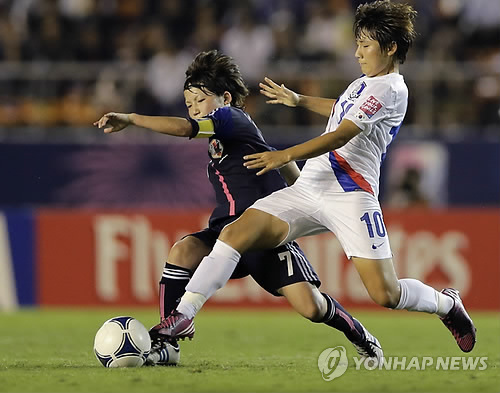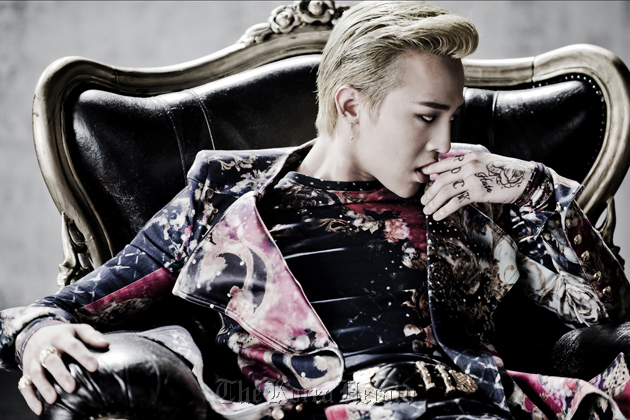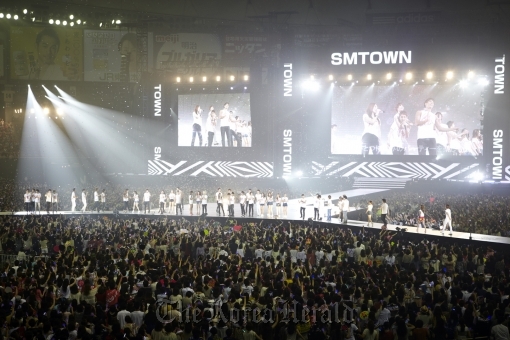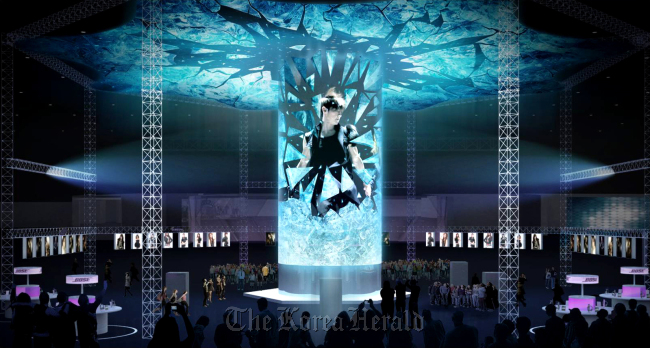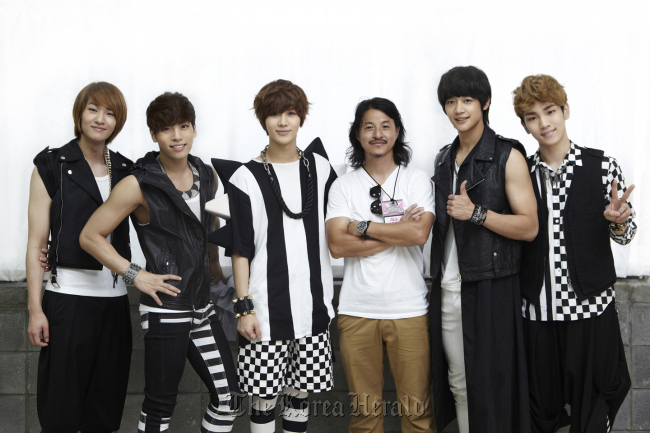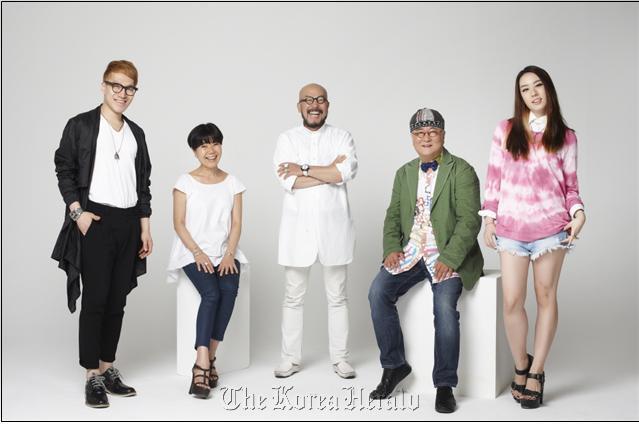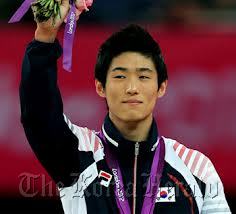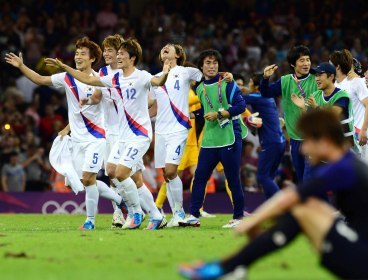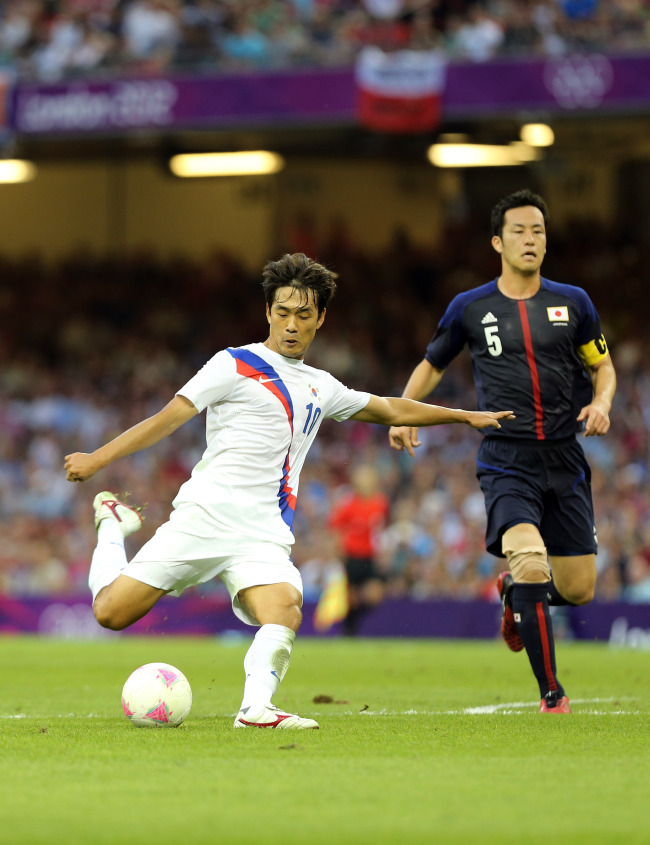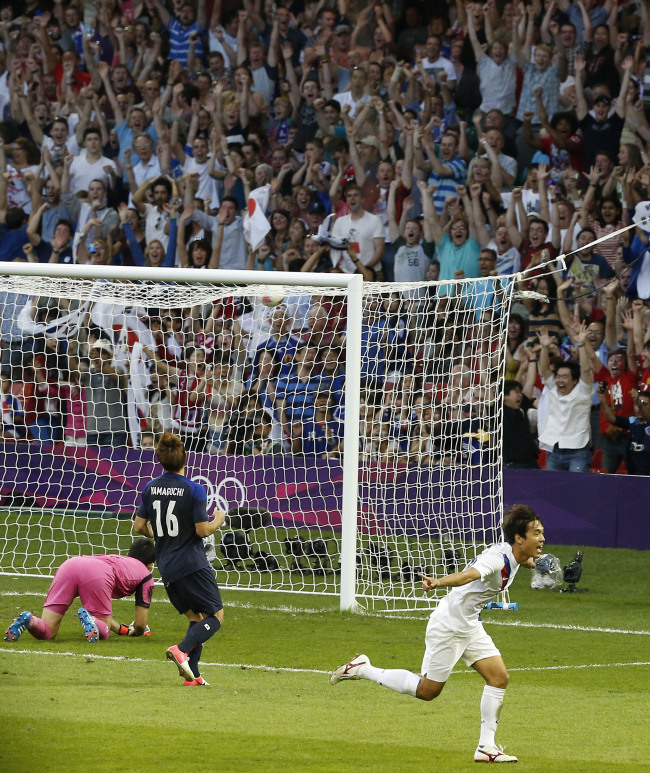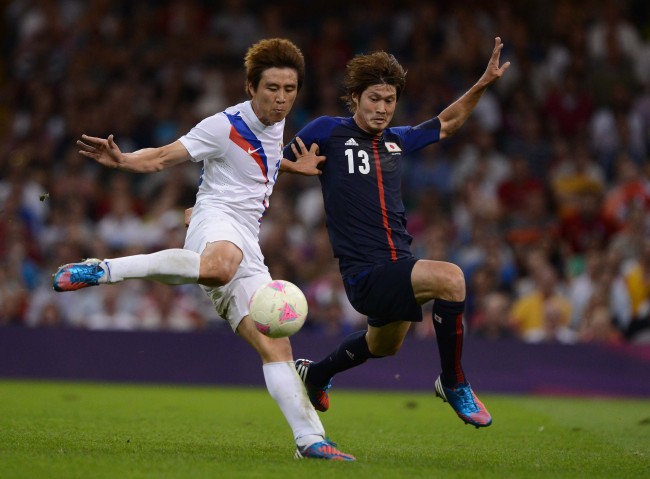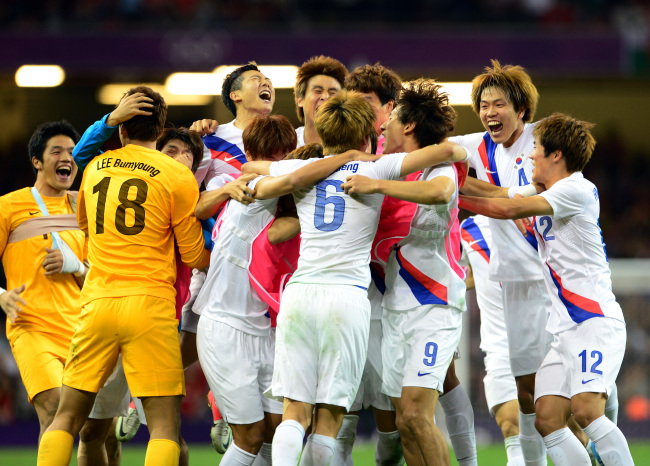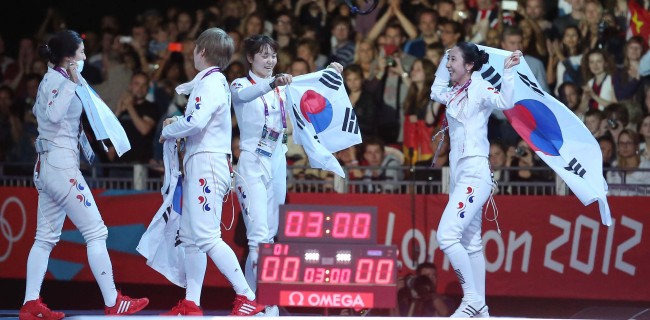Not since Zorro’s “Z” has a letter evoked
more passion in the popular psyche than “K.” The “K” here, of course, stands for
Korea, and it has grown to be a top prefix in today’s popular culture from K-pop
(music), K-drama and K-movie to K-tech.
Its popularity has made it a
coveted prefix for various local arenas other than culture and entertainment
too, such as business and politics.
At the recent One Million Youth
Gathering 2012 in Putrajaya, K-pop acts were featured to attract young voters,
while many politicians have not hesitated to K-pop name drop on their social
media network to hip up their image.
In Malaysia, this craze for Korean
pop culture, known as the Korean Wave or Hallyu, is thought to have begun with
the debut of the Korean hit drama Winter Sonata on TV3 in August
2002.
While the term Hallyu, coined in 1999 by Chinese journalists when
China started being flooded by Korean TV dramas and pop music, was not yet
widespread then, South Korea had already gripped people’s imagination by
becoming the first Asian team to finish in the last four of 2002 FIFA World Cup
tournament that June, which it also co-hosted with Japan.
Once captivated
by South Korean World Cup hero Ahn Jung-Hwan, many Malaysians especially women
were quick to fall for the charms of Winter Sonata’s main lead Bae Yong-Joon,
elevating the series, along with Bae, to a cult status. (His co-stars Choi
Ji-Woo and the late Park Yong-Ha also garnered a big following, but not as big
as Bae’s.)
By the time Jewel in the Palace and Autumn in My Heart arrived
on Malaysian shores, the Korean drama trend had spread like wildfire, especially
with Japan catching the fever in 2003 to drive the Yon-sama (as Bae was tagged
in Japan) frenzy higher.
Korean Tourism Organisation Kuala Lumpur
managing director Yun Jae-Jin affirms that Winter Sonata helped to promote South
Korea and its culture to the world.
Not surprisingly, KTO, the Korean
government and many of the republic’s businesses have been quick to ride the
rising wave to sell the country and their products globally.
According to
Yun, the surge of Hallyu can be divided into three stages the spread of Korean
drama series and movies (approximately 2002-2007); K-pop (circa 2008 until now);
and the not-so-well-known aspects of Korean culture like computer games,
animation, history and traditional arts.
“It’s a long-term effort of
branding South Korea and, as you can see, Winter Sonata has been successful
while K-pop is now pushing the brand further,” Yun says, highlighting that the
Korean government is in the midst of planning for the development of the
infrastructure for stage three of Hallyu.
One industry that Winter Sonata
has clearly helped to boost is the country’s tourism, particularly to Nami
Island near Chuncheong, Gangwon Province, where it was filmed.
Some
90,000 foreign tourists visit Nami Island each year, notes Yun, adding that
Malaysia is the fastest growing inbound market for Korea with a 40 per cent
growth in 2011 (156,281) and 44 per cent in 2010 (up to 113,675 from 80,104 in
2009).
KTO expects the number of Malaysian travellers to reach 200,000 by
the end of this year due to the growing number of Hallyu fans.
Jumping
from the Hallyu platform, KTO now hopes to promote other tourist attractions of
Korea, particularly its natural wonders, traditional culture, local festivals
(Korea has more than 1,000 traditional festivals in a year) and historical
sites.
K-pop swing
Although Korean dramas remain popular among
Malaysian fans, K-pop has garnered an equal, if not bigger, number of followers
over the last few years.
In 2006, TVXQ became the first Korean band to
perform in Malaysia, opening the gates for other K-pop stars such as Rain, Super
Junior, Wonder Girls and Girls’ Generation to showcase their music
here.
Nini Yusof, country manager (advertising sales Malaysia) with
Universal Networks International (which runs the E! channel, among others) feels
this growing interest is reflected in the increasing number of K-pop acts that
have performed here. “Now, you can see at least one K-pop act performing here
every three months.”
DiGi, which has been hosting various K-pop “parties”
with stars like 4Minute, Beast, G.NA and recently Jay Park, is also a proponent
of K-pop here.
“K-pop is a music genre that is very close to the hearts
of our customers, especially among the youths,” DiGi’s head of marketing
services Sulin Lau had said at a press conference promoting K-pop star Jay
Park.
In fact, a KTO survey conducted in May last year showed that K-pop
has indeed overtaken K-drama as the main purveyor of Hallyu in Malaysia and
elsewhere.
The survey revealed that, driven mainly by the Internet and
social media network, more than 53.3 per cent of 12,085 fans from 102 countries
chose K-pop as the Hallyu aspect that interested them most.
The K-pop
influence online was proven when YouTube invited K-pop stars TVXQ and Kara to
headline its seventh anniversary concert in California recently. The 22,000
fullhouse reception for the concert reflected how the K-pop fanbase has grown
not only in size but also range.
In June last year, the European media
was blown away by how a concert in Paris by unknown artists (to them) from a
faraway land managed to sell out within minutes. Another date was added, but it
was sold out just as fast. The event, recorded as the “official” debut of K-pop
on the European stage, was a joint performance by artists attached to leading
South Korean management company SM Entertainment, such as Girls’ Generation,
Shinee and Super Junior.
To the European media’s further bemusement, the
audience, made up largely of teens and 20-somethings from all over Europe, not
only shouted out the names of each singer but also sang along with the lyrics in
Korean, and copied the dance moves.
Later in the year, the same event was
held in the United States to a similar reception while the Internet was abuzz
with fan demands from Central America and South America for the concert to be
held in their hometown.
That is the power of the Internet, which is now
driving K-pop and Hallyu around the world, says Nini, who knows only too well
how the Internet is blowing up the Hallyu craze.
Their entertainment news
show E!News Asia has had to include Korean entertainment news in the last year.
As she puts it, if you claim to be on the pulse of Asian entertainment, then you
would need to keep up with Korean entertainment.
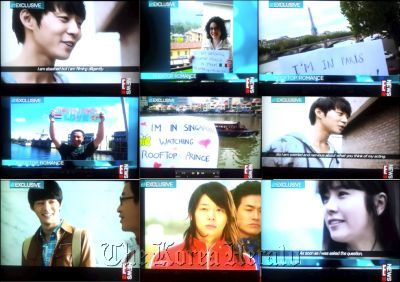 |
| Global impact:
E!news Asia’s Rooftop prince photo message campaign shows how popular Korean
dramas are getting around the world, including in places traditionally not
Hallyu crazy. |
In April, E!News Asia and
Korean TV network SBS invited fans from all over the world to e-mail photos of
themselves and messages describing how they were enjoying the SBS drama series
Rooftop Prince.
The response they received came from fans from over 40
countries, which included those not normally known as “Hallyu-crazy”. These
included Chile, Peru, Russia, Italy, the Netherlands, Iran and even
Nigeria.
“What amazed the Korean network and its drama production team
was that this was the first Korean drama that has not even finished broadcasting
in Korea but was already making a big impact around the world. And it is all
because of the Internet,” says Nini.
The Internet factor not only opened
up the window for a bigger base of fans but also various business ventures (see
accompanying story on Korean drama portal maaduu.com.)
Another factor is
the expansion of Korean broadcast networks to the region. Due to the Hallyu
explosion, Astro began broadcasting KBS World, a South Korean TV channel
operated by the Korean Broadcasting System in Malaysia in October
2009.
AC Nielsen figures show that 1.1 million Malaysian viewers, most of
them in the Klang Valley, tuned in to KBS World from November to December
2010.
The higher demand for more Korean programmes prompted Astro to
launch its second Korean channel in high-definition One HD in October
2010.
Ricky Ow, executive vice president of Sony Pictures Television’s
Networks Asia (which runs One HD), says that since Winter Sonata sparked the
wave, Korean entertainment has been growing exponentially over the last
decade.
“We see the adaptation of Korean movies in Hollywood, we see
K-pop topping the charts as far away as Europe and Latin America and even more
evident is the fact that Korean dramas have been delivering stronger ratings
than local dramas on terrestrial stations,” says Ow.
Power
appeal
Many have tried to explain the appeal of K-drama and K-pop,
especially the Winter Sonata phenomenon.
Most fans would admit now that
they found the 2002 melodrama overly mushy with its convoluted plot and starring
an actor with a dodgy fashion sense. Revolving around the love of two high
school sweethearts who discover that they might be long-lost siblings, Winter
Sonata’s plot was as dated as it was far-fetched.
The inexplicable
appeal, however, and the rippling effects it caused, could not be
denied.
According to culture critics, one pull is the escapism
value.
Winter Sonata was therapeutic, Korean culture critic Lee Young-mi
told the Korean daily The Korea Herald, especially after the “collective trauma
of the 1997 financial crisis”.
In Malaysia, like many South-East Asian
countries, escapism is a major appeal of Korean dramas, not only for those who
aspire to a better lifestyle but also for those looking for safe entertainment
which has no explicit scenes that you would normally get in shows from the
West.
While academics grapple with the psycho-sociological aspects,
industry players like Yun put it down to the production standards the Korean
drama industry upholds, supported by the huge capital investment poured into it
by both the government and corporate sector.
Ow agrees, and cites another
“winning formula” which is a big factor a strong cast and a good
script.
Whether it’s a Hollywood or Korean production, the winning
formula remains the same, he says.
“And what is interesting in Asia, and
Korea in particular, is that there are still a lot of good stories to tell, and
the strong pull for the audience are that these are stories that the current
Asian viewer can easily relate to.”
K-drama content is constantly
evolving to appeal to a wider demographic, he notes.
“We have seen a
change in content catering to what used to be a largely mature, female
demographic (the highly popular tragic dramas in the Winter Sonata era) to a
wider demographic such as the young working adults (City Hunter) and the teens
(Rooftop Prince).”
As they say, success begets success.
The
success of the Hallyu has thus resulted in a higher volume of more
sophisticated, quality dramas produced on a bigger scale with a bigger
production budget.
“Ultimately, it’s not the topics that matter, but how
the stories are told a skill that the Koreans have mastered well, in creating a
wide variety of material that resonates with the audience,” says
Ow.
Trading boost
Hallyu has also bolstered other areas of Korea’s
contemporary culture such as its cosmetics and beauty industry as well as
fashion.
Online Korean entertainment portal Maaduu.com chief executive
officer Dennis Lee points out that the culture is so widespread in the region
that if you go to Bangkok or Jakarta, you will feel that you are in
Seoul.
“Everyone’s sporting the same style influenced by the K-pop scene:
same clothes, same hairstyle, same cosmetics and, of course, humming (or
yelping) the same music.”
Another boost is in trade between South Korea
and Malaysia.
South Korea is Malaysia’s sixth largest trading partner,
accounting for 4.2% of its global trade, while Malaysia is South Korea’s 12th
largest global trading partner. The republic is also the country’s seventh
largest export destination, while Malaysia is South Korea’s 21st largest export
destination.
The spread of Korean products and businesses to Malaysia can
be seen in some ways in the growth of Korea town in Kuala Lumpur.
In
Ampang Jaya, Selangor, you can find many restaurants offering authentic Korean
fare, grocery stores and mini marts selling all manner of South Korean delights
and necessities, as well as tuition centres and Internet cafes bedecked with
signage and advertisements in the Korean language.
These places are
seeing customers not only among Korean expatriates, whose number has been
increasing over the years, but also Malaysians who are interested in all things
Korean.
By Hariati Azizan
(The Star)



